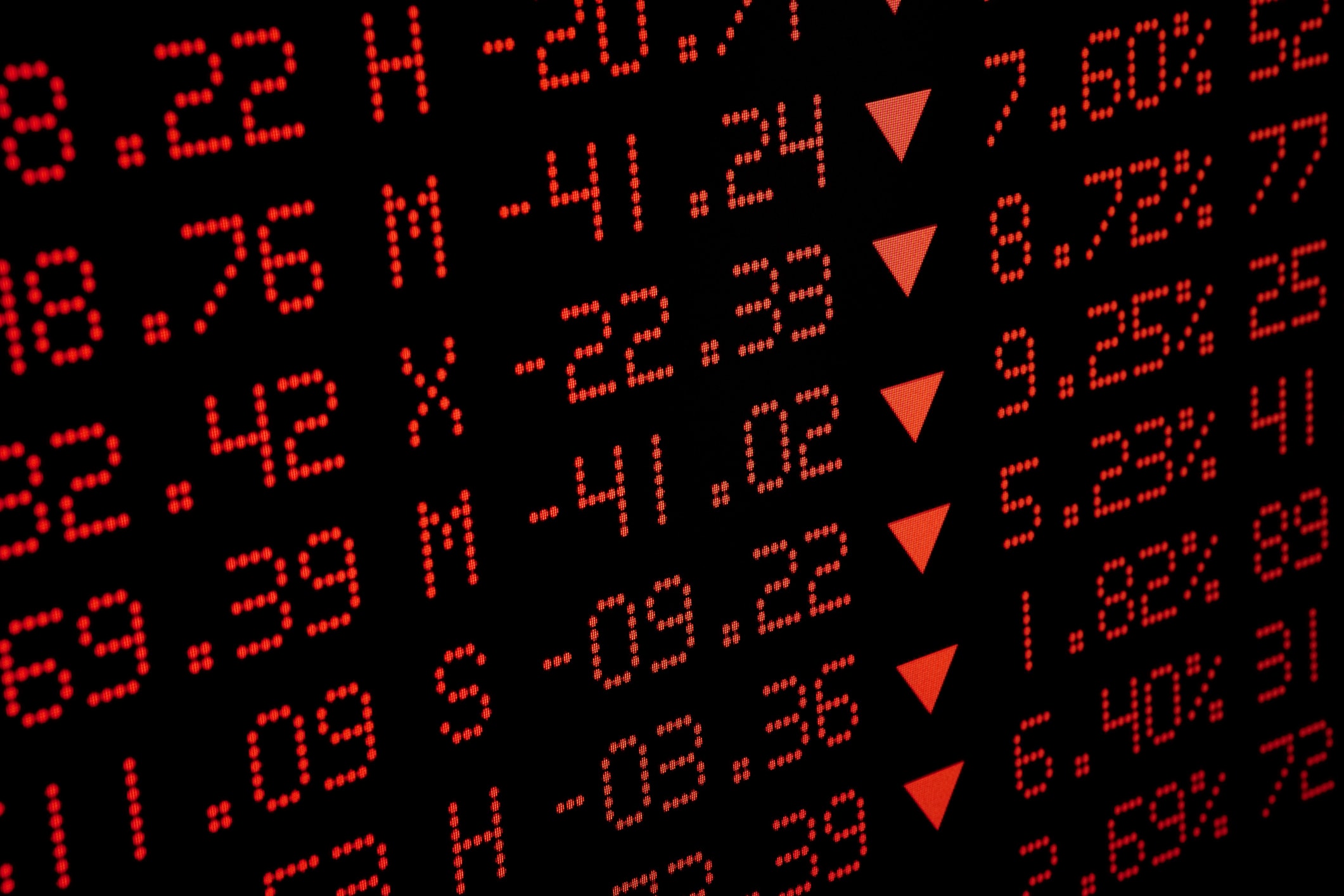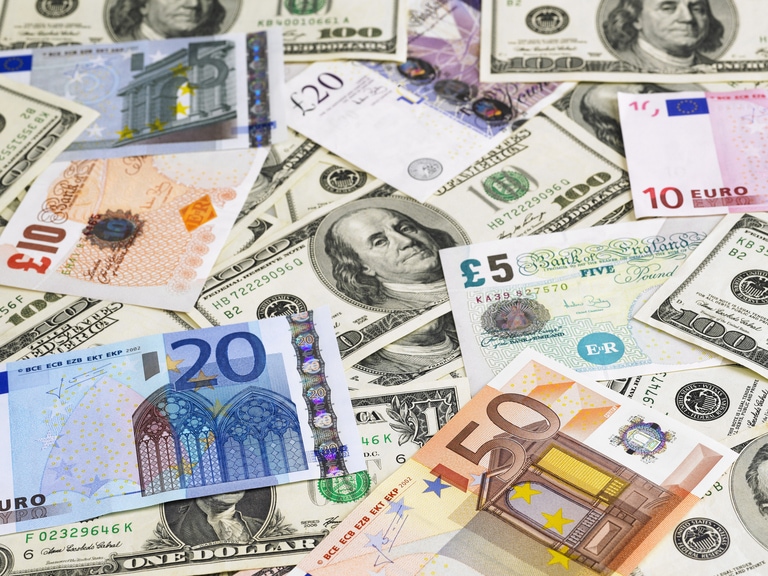It’s been another choppy session for European markets after an initially positive start was partially undone by a sharp rise in yields, and weakness in US markets, after the latest ISM services report for August raised the expectation of another 75bps rate move by the Federal Reserve in just over a fortnight’s time.
Europe
A slide in energy prices isn’t helping with that sector acting as a drag, as politicians across Europe take steps to ameliorate some of the worst effects of the rise in energy prices on their economies.
In the UK, it is being reported that new PM Liz Truss is bringing forward a £170bn package of measures to support business and consumers, freezing energy prices at their current levels for two years. This has prompted a sharp rise in UK gilt yields to 11-year highs.
Nonetheless these reports have helped give a lift to consumer discretionary pushing the likes of JD Sports, Kingfisher and Nexthigher.
House builders are also enjoying a rebound after Berkeley Group reiterated its profit guidance for the current financial year of £600m, and £625m for the following fiscal year of 2024, despite rising cost inflation of between 5% and 10%. The housebuilder has said that underlying sales for the first four months of the year are ahead of last year’s levels.
Packaging company DS Smith Q1 trading update has seen corrugated volumes decline slightly on a like for like basis, while costs have risen significantly. These higher energy costs have been hedged 90% in 2023 and 80% circa 2024. The company kept its outlook unchanged for 2023.
Amongst the worst performersAshteadshareshave slipped back despite a solid set of Q1 numbers which has seen the equipment rental company post a 25% increase in revenues to $2.26bn, which has helped to push up profits before tax to $527m, a rise of 28%.
Centrica shares are rallying on the back of the new energy package set to be announced by the UK government which appears to rule out the prospect of a windfall tax.
Today’s decline in crude oil and natural gas prices appears to be weighing on the energy sector, with declines for BP and Shell acting as a drag on the FTSE100.
US
US markets initially opened slightly higher after the long weekend break, however these gains proved short-lived as a rise in yields weighed on risk.
On the data front we have continued to see divergence between the S&P services PMI for August, which came in at 43.7, down from 47.3, while on the ISM measure economic activity improved to 56.9, from 56.7.
The shares of Bed Bath & Beyond have come under further pressure after the weekend death of its CFO Gustavo Arnal in a reported suicide.
GameStop shares are also lower as investor look towards tomorrow’s latest earnings numbers.
FX
A sharp rise in US yields is helping to support the US dollar with the return of US markets, pulling the rest of the G10 currency space lower.
The pound briefly rebounded from its lowest levels since March 2020 against the US dollar, briefly nudging above 1.1600 after new PM Liz Truss unveiled a £130bn package to freeze consumer energy bills at their April 2022 level of £1,971. A further package of £40bn to help businesses to absorb the price increases has also been touted, and which has helped put a floor under recent declines, with strong gains against the euro and the Japanese yen.
These new measures are also likely to ease some of the upward pressure on inflation and prompt some rapid revisions from some of the gloomier inflation predictions we’ve had to endure over the past few weeks. Of course, there is some concern about the cost of the package, and how it will be paid for, as well as fears it might in itself underpin inflation. These are valid concerns, but they also need to be weighed up against the costs of doing nothing, and the long-term damage to the economy of not acting. There is a concern that by subsidising energy prices that inflation will appear remain higher for longer. This may well be true but given recent consumer spending patterns there is little sign of that with prices at current levels. UK gilt yields have pushed above 3% for the first time since 2014, in anticipation that the Bank of England may have to adopt a slightly more aggressive rate posture.
The Japanese yen has continued to slide, slicing through the 140.00 area and well on the way to 145.00 unless the Bank of Japan decides it needs to stem the slide. Year to date the Japanese yen is down over 19% with the prospect that it could get even worse. There has been constant speculation over the past few weeks that the BoJ may well take steps to arrest the slide, however, to date they’ve given little indication that they wish to do that. Their current monetary policy stance is very deliberately at the opposite end of what every other central bank is doing. If they wanted to stop the slide in the yen the answer is quite simple, and can be summed up in one word, pivot. Talk of co-ordinated intervention seems somewhat premature before the Bank of Japan has explored this issue of shifting its policy stance.
The euro has also come under renewed pressure, slipping to a fresh 20-year lows, after some chatter that suggested we might only see a 50bps rate rise this week, instead of the widely expected 75bps.
We’ve seen further downward pressure on oil prices, over rising demand concerns, despite the OPEC+ production cuts announced yesterday. The decision by Saudi Arabia to lower prices for its Asia customers for October also appears to indicate a direction of travel with respect to concerns over recession. Reports of more Chinese cities getting locked down isn’t helping with the latest being Guiyang, in Guizhou province. Coming on top of Chengdu as well as Shenzhou and there are real concerns that with winter still to arrive the worst could be yet to come.
Rising yields and a stronger US dollar are continuing to act as a drag on gold prices, with a fall below $1,700 potentially opening up the risk of further losses towards $1,680 and July lows.
Volatility
With US markets closed for the Labor Day holiday, overall sentiment appeared somewhat subdued as the new week got underway. One instrument of interest however proved to be the Sterling Aussie Dollar cross, which broke below a technical support level last week. Having taken a bashing in recent weeks, Sterling is now finding some broader based support as bargain hunters move back in, but expect policy decisions by the newly appointed UK PM to be closely followed. Daily vol on GBP/AUD hit 9.69%, up from 8.18% on the month.
That looming OPEC+ meeting once again saw assorted oil products displaying elevated levels of price action. WTI Crude traded in a range of around 5% but lesser traded instruments such as Low Sulphur Gas Oil were displaying higher levels of volatility, printing 61.2% on the day against 53.05% on the month. It was a similar story for heating oil, again with volatility here coming in at 54.96% on the day over 49.97% on the month.
That suspension of Russian gas supplies to Europe hammered the DAX on Monday, sending Germany’s benchmark index more than 3% lower at one point before a modest recovery was seen heading into the close. That left it as the most volatile index, printing 24.22% on the day against 19.8% on the week.
Finally, crypto assets were again broadly subdued with Ethereum Classic being the exception here in the wake of news that the rate at which the coin was being mined had soared to record levels. Daily vol against the US Dollar came in at 102.95% compared with 93.38% on the month.






